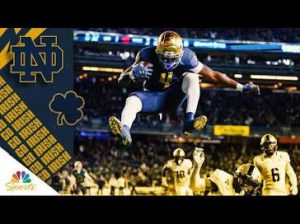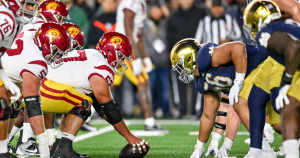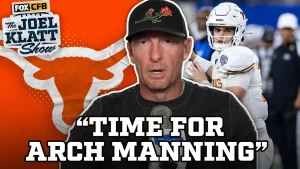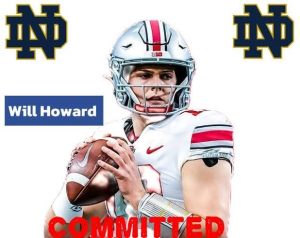
Comparing Coaches Knute Rockne and Marcus Freeman: Legacy and Leadership at Notre Dame
The University of Notre Dame has long been a bastion of excellence in college football, and two of its most influential head coaches—Knute Rockne and Marcus Freeman—embody the program’s rich history and evolving future. While separated by nearly a century, both coaches have left indelible marks on the Fighting Irish, albeit in different eras and contexts.GQ+1Decider+1
Born in Norway in 1888, Knute Kenneth Rockne immigrated to the United States with his family in 1893. After excelling in both football and track at Notre Dame, he graduated in 1914. Rockne returned to his alma mater in 1918 as head coach and athletic director, positions he held until his untimely death in 1931. During his 13-year tenure, he compiled an extraordinary record of 105 wins, 12 losses, and 5 ties, with five undefeated seasons and three national championships in 1924, 1929, and 1930 .Encyclopedia Britannica+1Forbes+1Forbes+1Encyclopedia Britannica+1
Rockne revolutionized college football with several key innovations:ND Fighting Irish Athletics+1Encyclopedia Britannica+1
-
The Forward Pass: In a 1913 game against Army, Rockne’s teammate Gus Dorais threw passes to him, showcasing the effectiveness of the forward pass and helping to popularize it in the sport .Encyclopedia Britannica
-
The Notre Dame Shift: This pre-snap movement by the backfield was so successful that it was eventually outlawed by college football rules-makers .ESPN.com
-
Platoon System and Shock Troops: He introduced the concept of platoon football, substituting entire units to maintain fresh legs, and used “shock troops” to wear down opponents early in games .ESPN.com
-
National Scheduling: Rockne expanded Notre Dame’s reach by scheduling games against top teams nationwide, elevating the program’s profile and challenging the best in the country .ND Fighting Irish Athletics
Beyond his coaching prowess, Rockne became a national figure through his public speaking, media presence, and endorsements. His death in a plane crash in 1931 shocked the nation, and his legacy was immortalized in the 1940 film Knute Rockne, All American, starring Ronald Reagan as George Gipp .Encyclopedia Britannica
Marcus Freeman, born in 1986, became Notre Dame’s 30th head football coach in 2021 at the age of 35, following the departure of Brian Kelly. His appointment was historic, making him the second Black head coach and the first with Korean heritage in the program’s 135-year history .GQ
Initially facing skepticism due to his relative inexperience, Freeman has led the Fighting Irish to significant success. Under his leadership, Notre Dame has achieved 13 consecutive victories, including key playoff wins against Georgia and Penn State, bringing the team to the brink of its first national championship since 1998 . His coaching style emphasizes discipline, resilience, and adaptability, qualities that have been instrumental in the team’s resurgence.One Foot Down+2New York Post+2GQ+2GQ
Freeman’s tenure has also been marked by a commitment to diversity and inclusion. His rise to head coach reflects a broader trend in college football toward greater representation, with Black coaches now holding more positions of influence, including Freeman’s historic role .WSJ
| Aspect | Knute Rockne | Marcus Freeman |
|---|---|---|
| Era | 1918–1931 | 2021–present |
| Record | 105–12–5 | 13–0 (as of January 2025) |
| Innovations | Forward pass, Notre Dame Shift, platoon system | Modernized recruiting, use of transfer portal |
| Cultural Impact | National icon, media presence, endorsements | Advocate for diversity, modern leadership |
| Legacy | Immortalized in film, Hall of Fame inductee | Emerging legacy, potential for long-term impact |
Knute Rockne and Marcus Freeman, though separated by time and circumstance, both exemplify the enduring spirit and excellence of Notre Dame football. Rockne’s innovations laid the foundation for the modern game, while Freeman’s leadership is steering the program toward a promising future. Together, they represent the rich tapestry of Notre Dame’s football history and its ongoing evolution.





